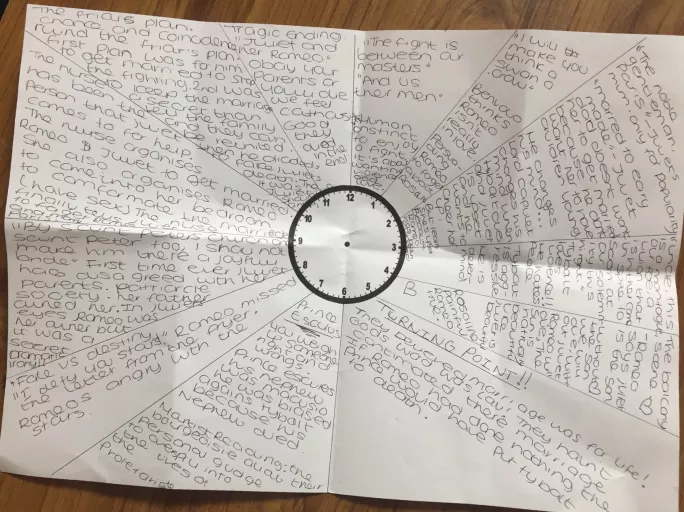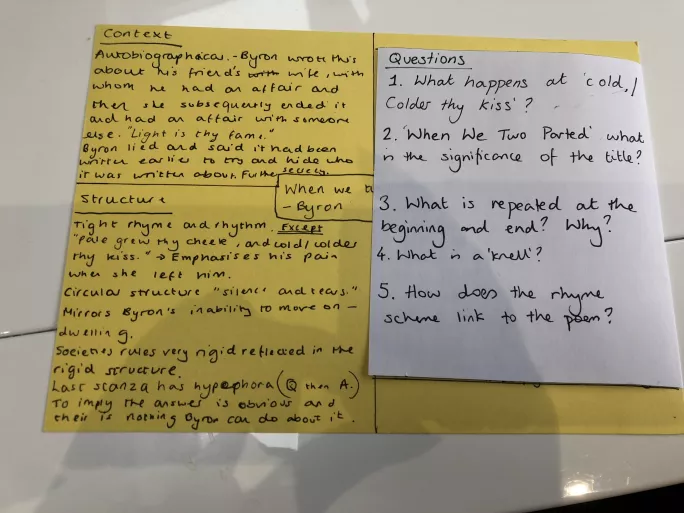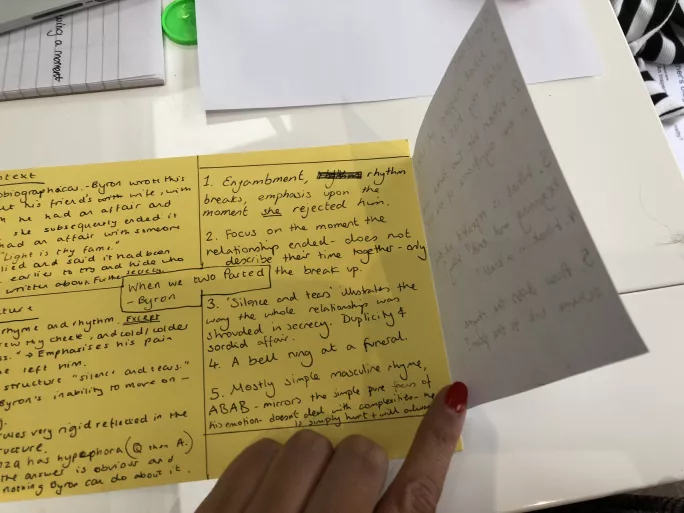- Home
- Six last-minute GCSE revision activities
Six last-minute GCSE revision activities

These last few weeks of revising in lessons can be an utter joy or an utter nightmare. Or, sometimes, both in the same lesson. There are the proclamations of epiphany mixed with the cries of indignation that such a topic would even be on the exam.
To make sure that the epiphanies outnumber the howls of despair, I’ve put together a list of some of my favourite revision activities to help you to pack in the information during this final sprint to the finish.
1. Clock revision
I originally saw this idea being used by a history teacher, but it definitely works well for any subject. The lesson is divided into five-minute chunks - and students have a clock diagram on which to take notes for each chunk (see illustration below). Together, you blast through a topic in 60 minutes. The time restrictions make it fun, the constant change will make the lesson fly, and it is a good way to cover a lot of information in not a lot of time.

2. Who said that?
This can be a multiple choice or open-ended activity. In English, the gist of it is that a quotation goes up on the board, and students must recall who said it. Mix it up with the follow-up question “Who are they talking about?”, or by using image prompts instead of quotations.
You can then develop this even further by introducing bonus points for identifying thematic links between quotes and drawing connections across topics.
3. Pictionary
Although this may sound gimmicky, Pictionary is actually an incredibly useful revision tool to check understanding. You will need to divide the class into two teams. One student draws a picture that everyone tries to guess in one minute. This is followed with a question related to the image. Points are awarded based on which team the correct answers come from.
It’s great for recall and, as long as you carefully plan the questions, everyone can be engaged and fill their page with notes. It’s also quite fascinating to watch a student try to draw “circular narrative”.
4. Quotation pairs
This activity is so simple - it should be as simple as printing and a few swipes of the guillotine. It involves creating a card sort that students can play using the rules of the card game Concentration, or Pairs.
As long as you don’t waste time making the cards in the lesson, this can be a nice self-testing method that will help students to identify their areas of weakness.
In English, I would use this to match up a quotation to a character, theme, time or meaning. For another subject, it would work for terms and their definitions, or theorists and their working examples.
5. Self-quizzing flashcards
My students have been making “flappable” flash cards with five key recap questions on a “flap”. These flash cards are now used for swapping and studying, and then self-testing using the five key questions. See images below.
The class also came up with a game in which cards are returned to their creators with five key answers, based on the information contained on the card. The creator is then challenged to come up with five new questions that would give the answers provided by their peer.


6. Student on trial
I adapted this from a plenary idea that I used back when I was a student teacher. Begin the lesson by accusing a group of students with the crime of knowing nothing about a specific topic. They must now prove their innocence.
Using the information in their exercise books, they must prepare for their trial, in which the rest of the class will take on the role of prosecutors, and come up with probing questions. The students on trial will be questioned and sentenced - and, at the end of the process, you can recap any other information you think the class have missed.
Grainne Hallahan has been teaching English in Essex for 10 years. She is part of the #TeamEnglish Twitter group
Want to keep up with the latest education news and opinion? Follow Tes on Twitter and like Tes on Facebook
Keep reading for just £1 per month
You've reached your limit of free articles this month. Subscribe for £1 per month for three months and get:
- Unlimited access to all Tes magazine content
- Exclusive subscriber-only stories
- Award-winning email newsletters



